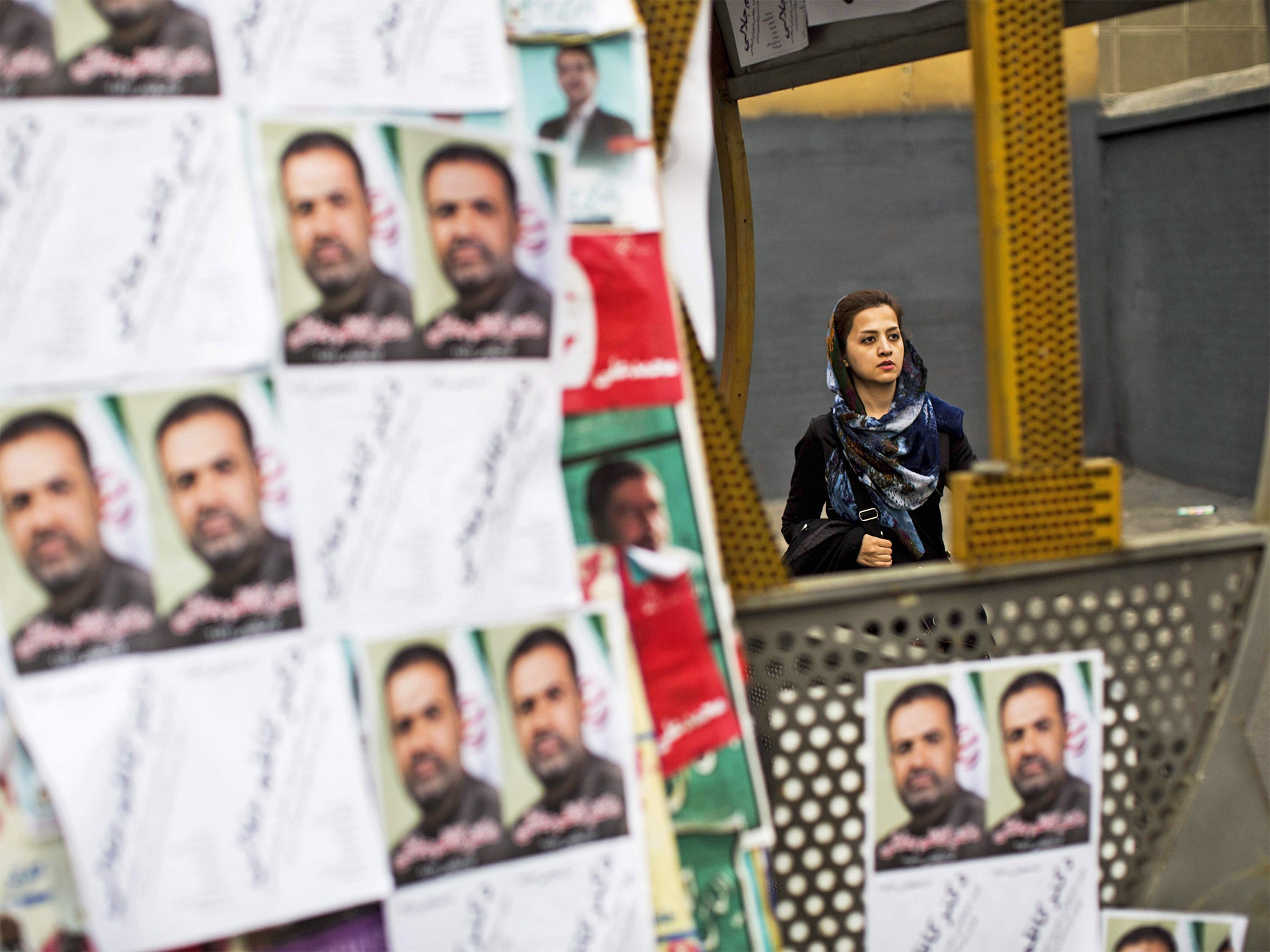Iranian elections: Young voters have power and must vote
Working within a compromised system, they still hold great sway

Your support helps us to tell the story
From reproductive rights to climate change to Big Tech, The Independent is on the ground when the story is developing. Whether it's investigating the financials of Elon Musk's pro-Trump PAC or producing our latest documentary, 'The A Word', which shines a light on the American women fighting for reproductive rights, we know how important it is to parse out the facts from the messaging.
At such a critical moment in US history, we need reporters on the ground. Your donation allows us to keep sending journalists to speak to both sides of the story.
The Independent is trusted by Americans across the entire political spectrum. And unlike many other quality news outlets, we choose not to lock Americans out of our reporting and analysis with paywalls. We believe quality journalism should be available to everyone, paid for by those who can afford it.
Your support makes all the difference.The elections in Iran could hardly come at a more pivotal moment, for the country and for the region. With the nuclear deal heralding the end of crippling international sanctions, the Islamic Republic is due a huge cash boost: whether the spinning wheels of commerce drive forward a hardline agenda, or a more liberal one, will depend in no small part on the result of the ballots on 26 February.
The Western-educated moderate President, Hassan Rouhani, will remain in place. But the parliament beneath him, and the Assembly of Experts in some ways above him, are up for renewal.
Recent elections have highlighted the schism between Iran’s young, tech-savvy population and an arthritic system of council elders and Iranian Revolutionary Guard Corps ex-soldiers who hold many of the levers to power, and form a close circle around the Supreme Leader, Ayatollah Ali Khamenei. In 2009, protests about a disputed election result led to hundreds of liberals being arrested, in a violent state crackdown. That quietened public expressions of dissent. But come 2013, the same demographic turned out en masse to boost the candidacy of Mr Rouhani, the sole moderate in a field of anti-Western reactionaries. It is imperative for the future of Iran that these elections witness a repeat.
Hardliners have done everything possible to narrow the field in their favour. Mr Rouhani called for thousands of citizens to run for office, in an attempt to buttress his support base, and make the state more reflective of outside society. However, the conservative Guardian Council – which vets candidates – has denied thousands of reformists the chance to run for parliament, and 80 per cent of all those going for the Assembly of Experts (including all the women, and the grandson of Ayatollah Ruhollah Khomeini, who has criticised the IRGC for meddling in politics). Their hope is that this cull will lead to a lower turnout, with the kind of voters who listen to Western music – formerly forbidden – becoming so unenthused with the candidates as to forgo casting a vote.
Despite Mr Rouhani’s signal achievement in securing a nuclear deal, his domestic attempts at political, cultural and economic reform have been strangled by the right-leaning parliament. There is a risk of disappointment leading to disaffection, which will play into the hands of Mr Khamenei’s cabal.
As we report, however, liberal voters appear to have adapted to the gerrymandering of the regime and are attempting to drive the vote up on the basis of excluding as many hardliners as possible, rather than embracing candidates for their own merits. Two notable conservatives – Ali Larjani, the Speaker of the Iranian parliament, and Ali Motahari – are expected to benefit most from these marriages of convenience.
If the hardliners win out, the prospects for Iran’s economy and regional security invite some anxiety. A boost to hardliners in parliament will translate to a more aggressive foreign policy, with more funding for Shia militias in Iraq and Syria, and a likely renewal of hostilities with Sunni Saudi Arabia. Should conservatives sweep the board in the Assembly of Experts, it could have even more deleterious consequences.
Mr Khamenei is 76, and rumoured to have prostate cancer. It is the duty of the Assembly to select his successor, should he pass away during the delegates’ eight-year term. Mr Khamenei’s vision for Iran lies at odds with the open-minded, prosperous nation desired by so many of his country’s young people. A replacement cut from the same cloth will put a drag on the kind of progress Iran is capable of.
Voters should bear that in mind, and turn out on 26 February. Working within a compromised system, they still hold great sway.
Join our commenting forum
Join thought-provoking conversations, follow other Independent readers and see their replies
Comments